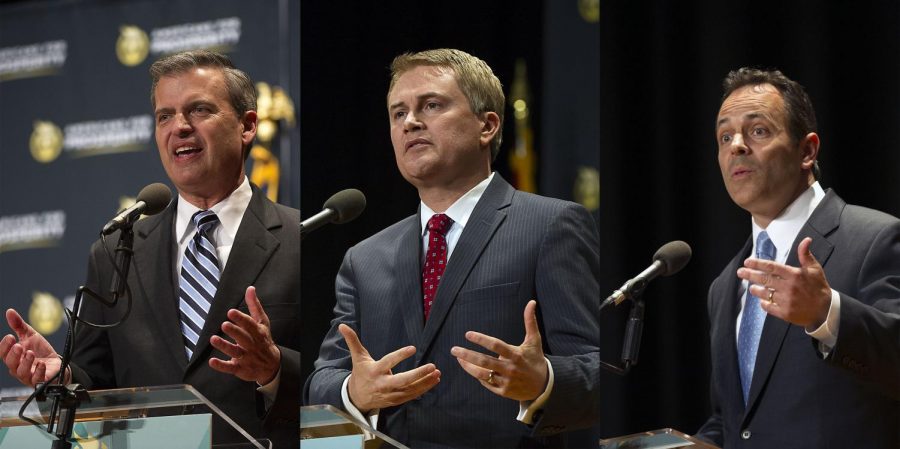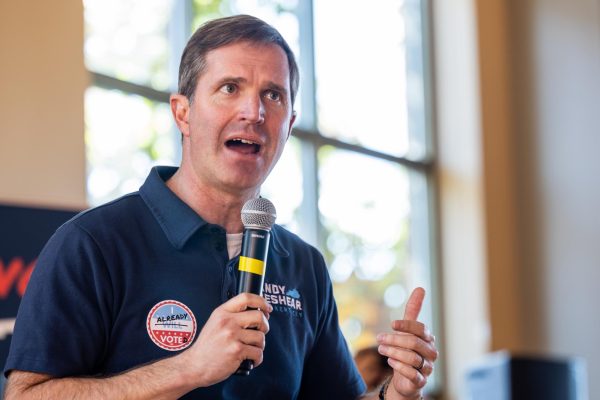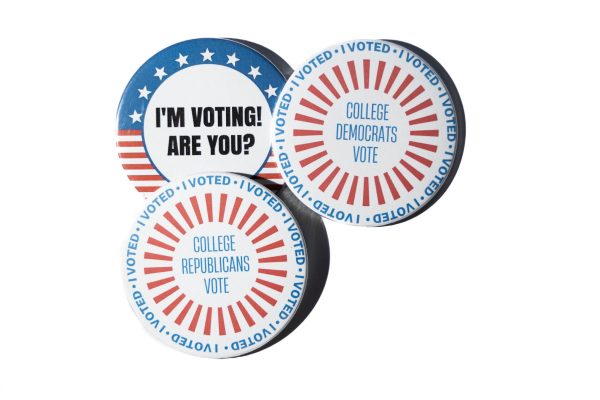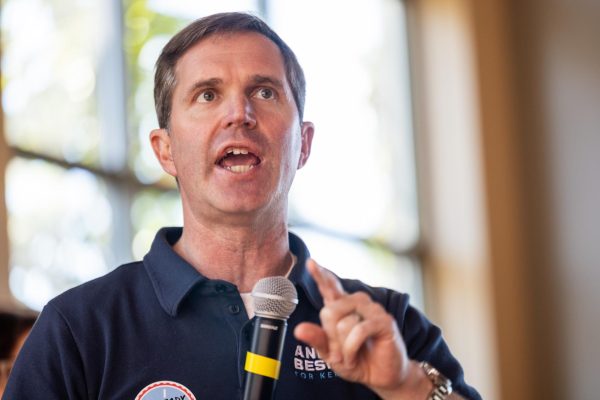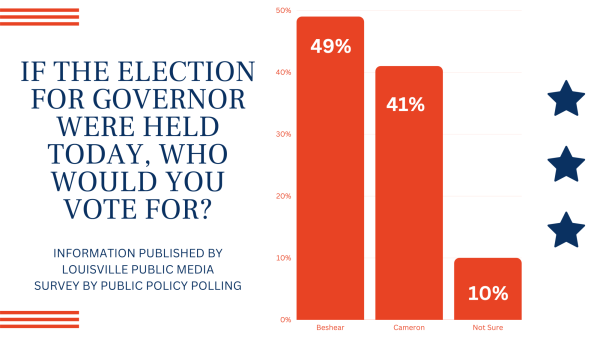Republican candidates for Governor debate on various issues
April 30, 2015
Education, healthcare, jobs and taxes ruled the discussion during Tuesday’s Republican gubernatorial debate.
Three out of the four Republican candidates for governor attended the debate in the Downing Student Union auditorium at 7 p.m. Tuesday. Candidates Matt Bevin, James Comer and Hal Heiner were in attendance. Candidate Will Scott could not attend the debate.
The debate was co-sponsored by the Americans for Prosperity, the National Review and the WKU political science department.
Heiner described himself as an unlikely candidate, one with a civil engineering background and a multitude of jobs.
“If you could name a job, I probably had it,” Heiner said. “To dishwasher, to janitor, to surveyor, to cutting lawns as I went through college.”
Bevin described himself as a husband, father of nine children, a military veteran and a small business owner.
“I look forward to the day when everyone asks ‘Why is everyone moving to Kentucky?’ instead of the other way around,” Bevin said.
Comer received a bachelor’s degree in agriculture from WKU in 1993 and currently serves as the Agriculture Commissioner. Comer said he helped make the Department of Agriculture more transparent, and he wants to continue the transparency in all aspects if elected governor.
“I’m running for governor because I want to do the same thing across the board with the Transportation Cabinet and the Education Cabinet,” Comer said. “We can operate government more efficiently.”
Eliana Johnson, Washington editor for the National Review and panelist, asked the first question of the night: “Would you repeal the Medicaid expansion that took place under Obamacare and if so, how would you limit eligibility in a way that serves both the needy and the taxpayer?”
Bevin and Comer said they would dismantle Kynect.
Bevin said he would dismantle it during his first year as governor, during the first open enrollment period.
“We will transition everybody that is on that exchange to the federal level exchange,” he said. “We will do that and then after the course of that transition, we will remove the healthcare exchange at the state level because frankly, it is a level of redundancy that we can’t afford.”
In addition to dismantling Kynect, Comer said he would change the Medicaid eligibility requirements. He said wants to get people off of Medicaid and onto private healthcare by improving Kentucky’s business climate.
Heiner said he would end the Kynect and replace it with a form adopted by other states that would have no impact on the state budget.
All candidates agreed Kentucky needs to become a right-to-work state, meaning individuals would not need to belong to a union to work.
Comer said becoming a right-to-work state would grow Kentucky’s economy.
“We have to create jobs in the state and that’s not going to happen until we become a right-to-work state,” Comer said.
Johnson asked a question near the end of the debate regarding the candidates’ opinion on using state funds to help students attend community college.
Bevin said it’s imperative a program is implemented to aid students, but noted that college may not be for everyone.
“The idea that every single person needs to go to college is nonsense,” Bevin said.
He said funding technical programs to make citizens employable in specialized areas would help create manufacturing jobs in the state.
Comer said he has a plan to make college more affordable by providing tax credit.
Joel Turner, assistant professor of political science and panelist, asked “What would you do as governor to help address the initial out of pocket costs of attending college.”
Comer said he wants to focus on creating jobs for graduating students by improving Kentucky’s business climate.
Heiner said he wants to make funds available for students choosing to pursue vocational training or certification programs. He said often students are left out from continuing education because of the lack of funding.
Bevin was the only candidate to mention the Common Core standards, a set of academic standards that were instated in response to public displeasure with education.
“I’ve made very clear that I will lead the cause of repealing Common Core in the state of Kentucky,” Bevin said.
Bevin said he mentioned the Common Core because Kentucky’s students are arriving to college unprepared due to Kentucky’s poor curriculum.
“Our universities are more and more like country clubs,” he said. “We have four or five times the cost and four or five times the comfort, but we’re not turning up four or five times the qualified students.”
Grayson county junior Chase Coffey, College Youth In Government vice president, said debates such as these are important to get involved in.
“It’s something that is going to impact us at all levels, going into the job market after we graduate, as well as tuition while we’re here,” Coffey said.
Coffey said he was hoping for questions regarding social issues. He also said he wanted a more direct answer on upfront tuition costs.
Louisville sophomore Jody Dahmer, College Youth In Government president, said he will be able to make a more informed decision.
“I only had researched James Comer,” Dahmer said. “It was very refreshing to see Hal Heiner and Matt Bevin speak about their issues. I had no idea about some of the backgrounds of both Hal Heiner and Matt Bevin.”
Turner said he and Johnson wrote the questions over the topics provided by the Americans for Prosperity.
“They’re an economically driven group, so that’s one of the reasons we didn’t ask about the gay marriage ruling,” Turner said.
Dahmer said his opinion has changed, especially regarding the education topics.
“I definitely know who I am going to vote for in this upcoming primary,” he said.


